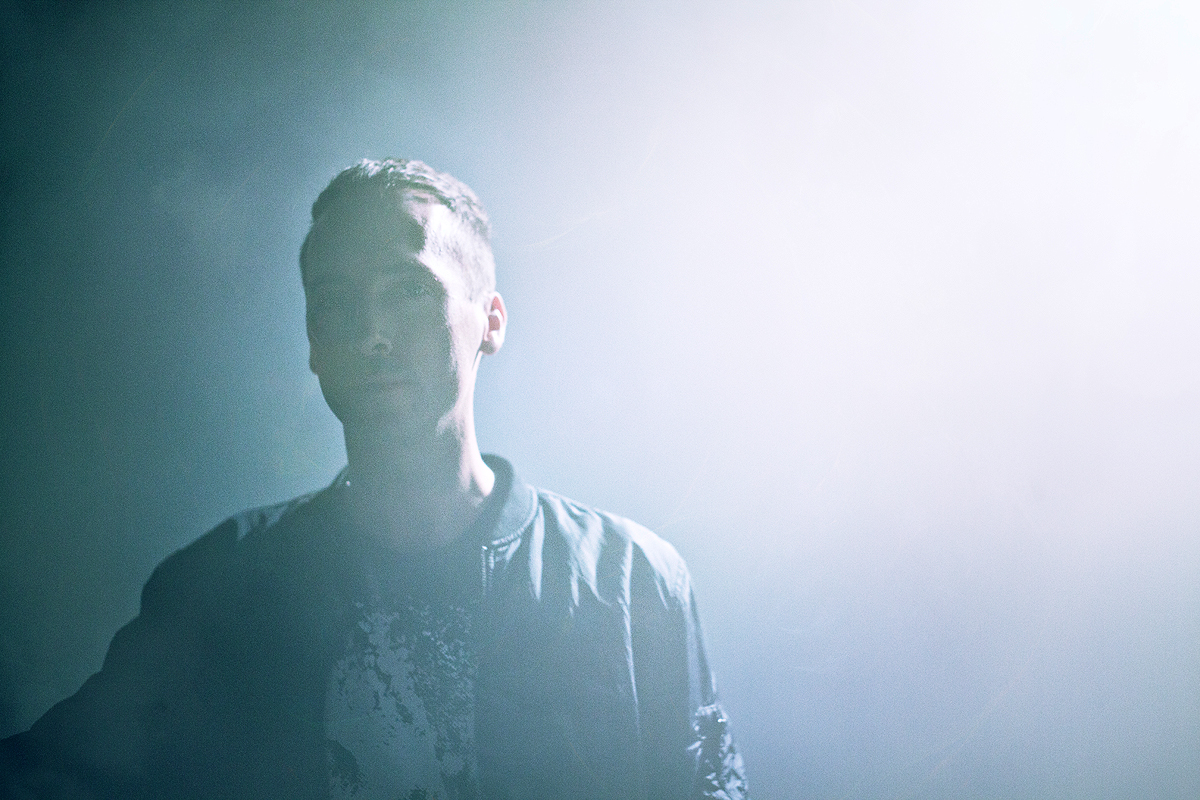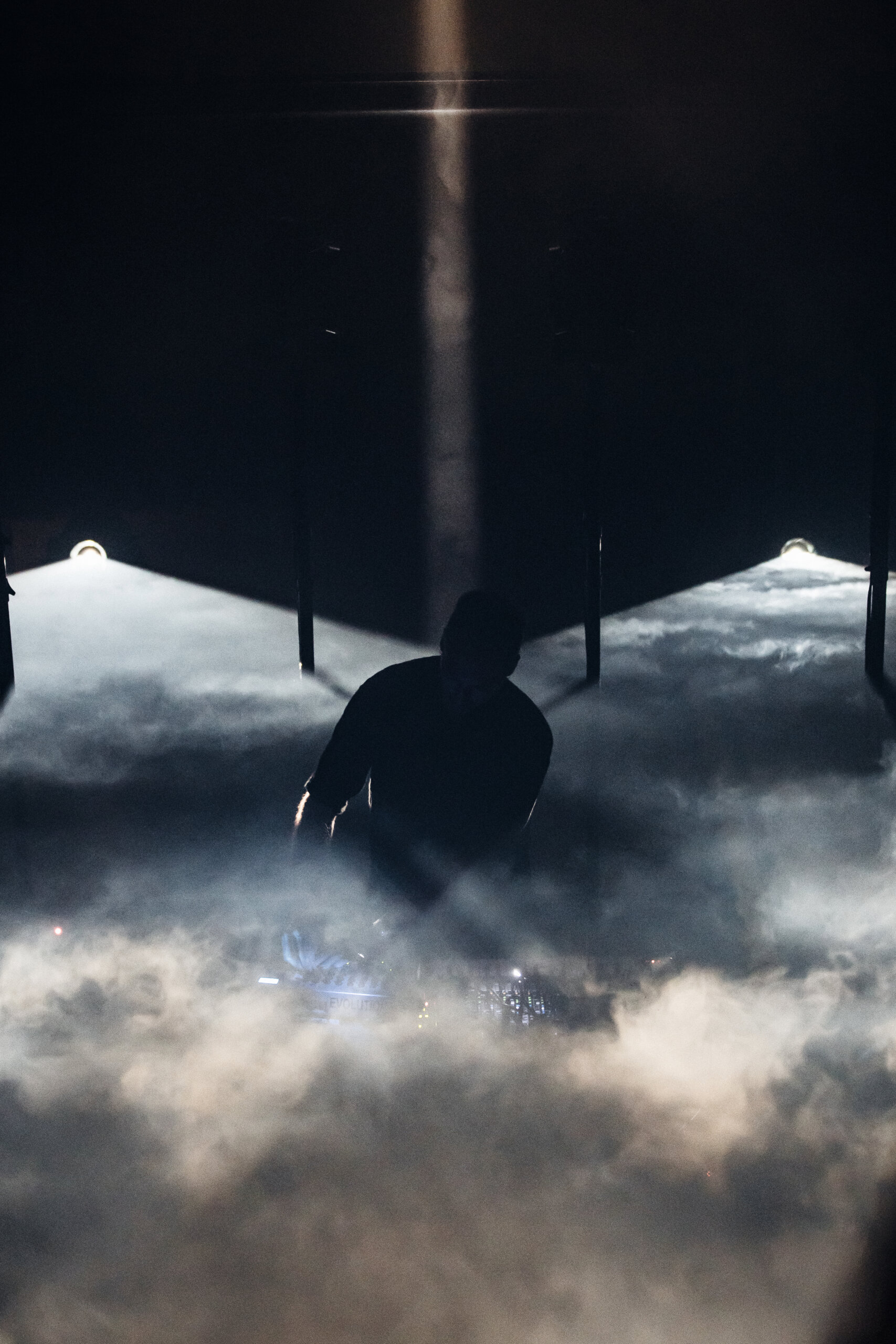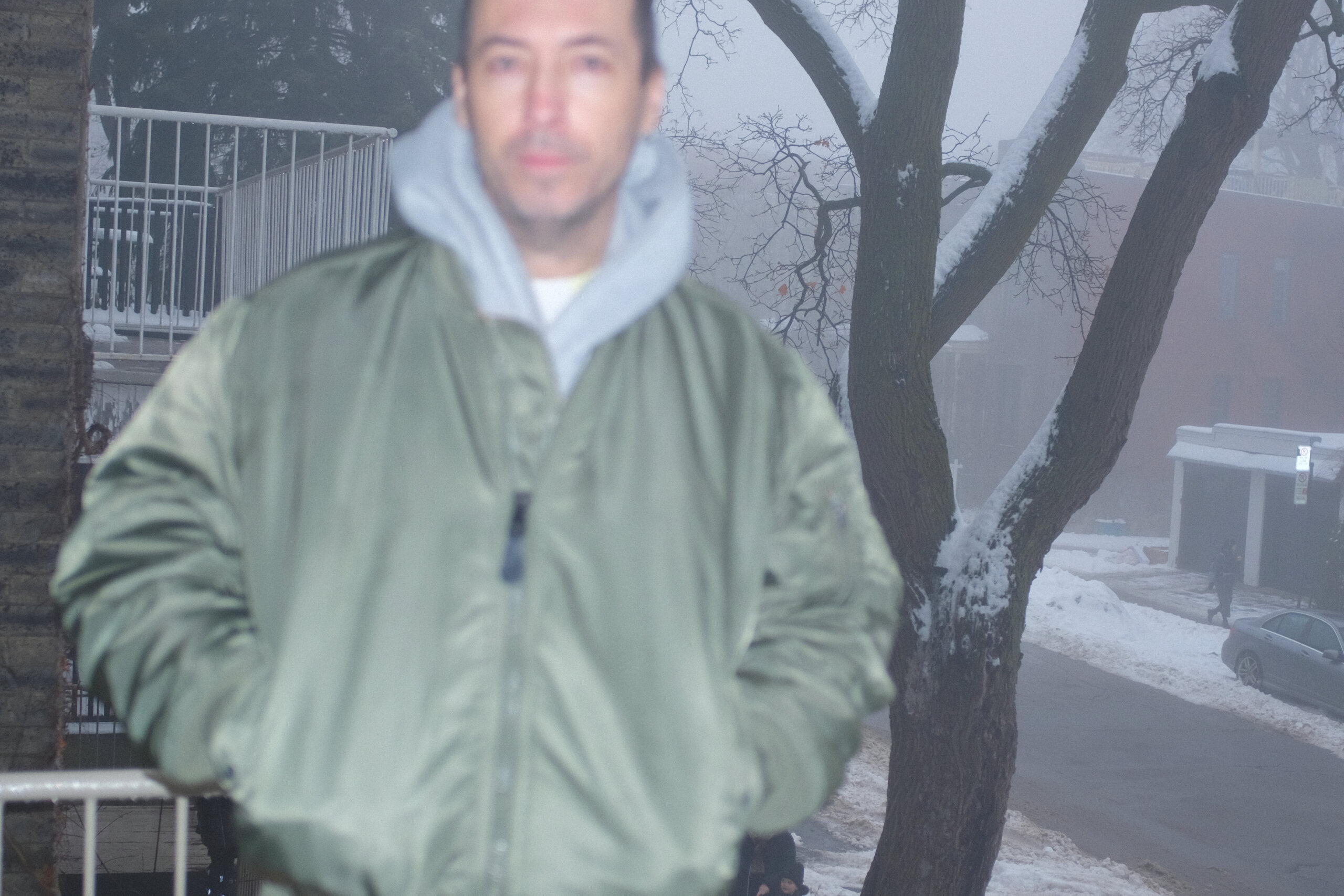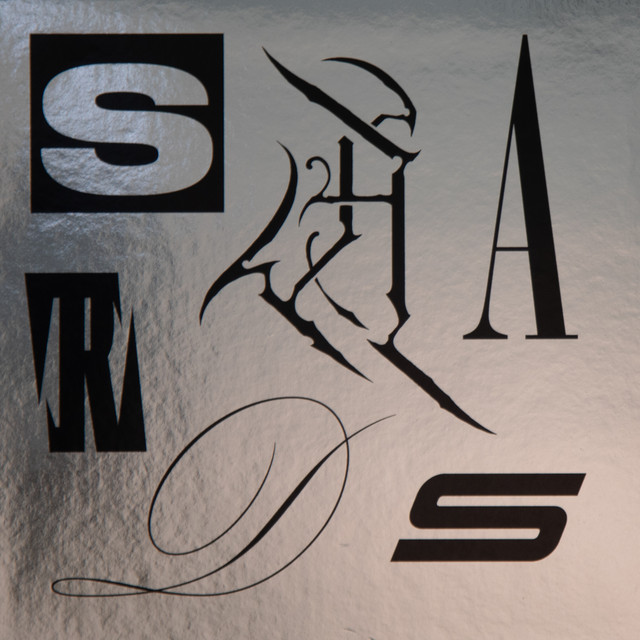Tim Hecker: Sculpting Sound and Emotion Through Sonic Experimentation

Photo by Maria Louceiro
Tim Hecker is a well-known Canadian electronic musician, composer and sound artist who has become a defining voice in the experimental music scene.
His musical career started in 1996 under the name Jetone, and later he moved to working on more layered, atmospheric compositions under his own name. During this time, Tim has released numerous albums and EPs, and he has also scored films like the Austrian horror Lucifer (2021) or the original score for the BBC series The North Water (2021). He has collaborated with artists like Arca, Ben Frost, Jóhann Jóhannsson, and Daniel Lopatin, and he has released albums on labels such as Kranky, Mille Plateaux, Alien8, Staalplaat, Fat Cat, Paper Bag Records, Software Recording Co. and 4AD.
His music isn’t just something you hear, it is full of sonic experience. His work can be described as immersive, ambiguous, and consistently challenging the listener to deeply engage with the sound. During all these years, Tim succeeded in creating his own recognizable style. His music is more about feeling and experimentation rather than classification. He often creates by deconstructing and processing sounds into some disfigured state where the origin becomes confused, ending up creating new sound identities that make it hard to tell where they came from in the first place. This process leads us as listeners into a huge creative space of play that perfectly reflects how much depth there is in his creations.
His music truly feels like stepping into a sonic world where emotions are amplified through sound, and at Waldorf Music we’re honored to contribute on this fascinating creative journey. Continue reading to hear what Tim has to say about it.
How did you start making music?
I‘ve been playing all my life. My grandmother had an old piano I was drawn to. Drums and guitar in high school. In university I started doing electronic music with an old tower PC computer.
What inspires your music?
It’s been different at different times in my life. Sometimes it’s been to make things I felt hadn’t been made in the way I wanted to hear them, other times it’s been experiences of other people’s art, sometimes it’s as a refuge from daily life.
What was your first synth?
Casio FZ-1 sampler. Zip drive, loved it!
What is the first thing you do when approaching a new synth?
I keep very few synths in my studio. Right now I have 4, including a Quantum. Generally though I ask myself what having this synth would add or be any different from the plethora of sounds I have both through synths and samples. But generally, I spend a lot of time getting to know the synth, and maybe designing about 30 presets so I can pull out sounds really quickly when something is on the go.

Photo by Jordan Munns

Photo by Katie Malia
Using presets or patching your own sounds?
Yes always, sometimes I mutate other presets into something different, but I can’t play stock sounds rarely ever and get satisfaction from it.
What do you appreciate most in a synthesizer?
Its specificness, something alive that has a character. Filters, envelopes.
What role do Waldorf synths play in your music?
I’ve had both a Microwave XT and a Quantum. The Quantum is closest to a perfect synthesizer, utilizing the best of analog and digital approaches in a keyboard.
What’s your typical workflow when starting a new project? Do you have a preferred instrument or technique to begin sketching ideas?
I don’t have a ‘workflow’, I just generally find some kind of kernel of an idea, a melody, a phrase, and expand upon it in layers, pulling out layers as I go…
At what time of day or night will we meet you most often in your studio?
Both! Sometimes it has to be daytime, but the night is the best for me.
What are your “must-have” tools in your studio, and what are the key hardware and/or software you use at the moment?
My studio centers around an API console with a small amount of master chain hardware by Manley, and a bunch of effects and distortions including a couple Eventide Harmonizers. Other than that, a modular rig and about 4 synths and some guitars. The computer goes through the desk and back in, often using Max/MSP when I’m improvising and writing.
How do you balance improvisation and structure in your music?
It’s all improvised then ultimately becomes structured after the fact.
What projects are you currently working on?
I’m just working on a couple scoring projects and writing new music for myself this year!

Album cover for Shards by Tim Hecker, released in February 2025
Follow Tim Hecker
Tim Hecker: Sculpting Sound and Emotion Through Sonic Experimentation

Photo by Maria Louceiro
Tim Hecker is a well-known Canadian electronic musician, composer and sound artist who has become a defining voice in the experimental music scene.
His musical career started in 1996 under the name Jetone, and later he moved to working on more layered, atmospheric compositions under his own name. During this time, Tim has released numerous albums and EPs, and he has also scored films like the Austrian horror Lucifer (2021) or the original score for the BBC series The North Water (2021). He has collaborated with artists like Arca, Ben Frost, Jóhann Jóhannsson, and Daniel Lopatin, and he has released albums on labels such as Kranky, Mille Plateaux, Alien8, Staalplaat, Fat Cat, Paper Bag Records, Software Recording Co. and 4AD.
His music isn’t just something you hear, it is full of sonic experience. His work can be described as immersive, ambiguous, and consistently challenging the listener to deeply engage with the sound. During all these years, Tim succeeded in creating his own recognizable style. His music is more about feeling and experimentation rather than classification. He often creates by deconstructing and processing sounds into some disfigured state where the origin becomes confused, ending up creating new sound identities that make it hard to tell where they came from in the first place. This process leads us as listeners into a huge creative space of play that perfectly reflects how much depth there is in his creations.
His music truly feels like stepping into a sonic world where emotions are amplified through sound, and at Waldorf Music we’re honored to contribute on this fascinating creative journey. Continue reading to hear what Tim has to say about it.

Photo by Jordan Munns
How did you start making music?
I‘ve been playing all my life. My grandmother had an old piano I was drawn to. Drums and guitar in high school. In university I started doing electronic music with an old tower PC computer.
What inspires your music?
It’s been different at different times in my life. Sometimes it’s been to make things I felt hadn’t been made in the way I wanted to hear them, other times it’s been experiences of other people’s art, sometimes it’s as a refuge from daily life.
What was your first synth?
Casio FZ-1 sampler. Zip drive, loved it!
What is the first thing you do when approaching a new synth?
I keep very few synths in my studio. Right now I have 4, including a Quantum. Generally though I ask myself what having this synth would add or be any different from the plethora of sounds I have both through synths and samples. But generally, I spend a lot of time getting to know the synth, and maybe designing about 30 presets so I can pull out sounds really quickly when something is on the go.

Photo by Katie Malia
Using presets or patching your own sounds?
Yes always, sometimes I mutate other presets into something different, but I can’t play stock sounds rarely ever and get satisfaction from it.
What do you appreciate most in a synthesizer?
Its specificness, something alive that has a character. Filters, envelopes.
What role do Waldorf synths play in your music?
I’ve had both a Microwave XT and a Quantum. The Quantum is closest to a perfect synthesizer, utilizing the best of analog and digital approaches in a keyboard.
What’s your typical workflow when starting a new project? Do you have a preferred instrument or technique to begin sketching ideas?
I don’t have a ‘workflow’, I just generally find some kind of kernel of an idea, a melody, a phrase, and expand upon it in layers, pulling out layers as I go…

Album cover for Shards by Tim Hecker, released in February 2025
At what time of day or night will we meet you most often in your studio?
Both! Sometimes it has to be daytime, but the night is the best for me.
What are your “must-have” tools in your studio, and what are the key hardware and/or software you use at the moment?
My studio centers around an API console with a small amount of master chain hardware by Manley, and a bunch of effects and distortions including a couple Eventide Harmonizers. Other than that, a modular rig and about 4 synths and some guitars. The computer goes through the desk and back in, often using Max/MSP when I’m improvising and writing.
How do you balance improvisation and structure in your music?
It’s all improvised then ultimately becomes structured after the fact.
What projects are you currently working on?
I’m just working on a couple scoring projects and writing new music for myself this year!

